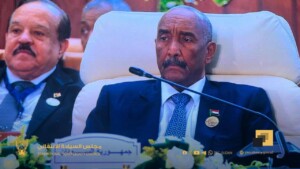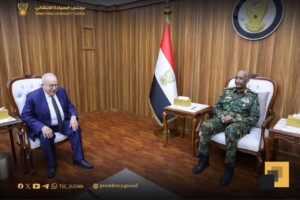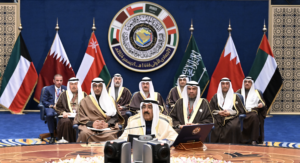AUHIP chairman Mbeki in Sudan for consultations
On Wednesday, Thabo Mbeki, Chairman of the AU High-level Implementation Panel (AUHIP), began a series of consultations in the Sudanese capital Khartoum on the faltering peace processes in the country.
On Wednesday, Thabo Mbeki, Chairman of the AU High-level Implementation Panel (AUHIP), began a series of consultations in the Sudanese capital Khartoum on the faltering peace processes in the country.
Last November, Mbeki announced the failure of the latest round of peace negotiations on the Two areas (South Kordofan and Blue Nile State) between the Sudanese government and the Sudan People’s Liberation Movement-North (SPLM-N), and on Darfur with the Justice and Equality Movement (JEM) and the Sudan Liberation Movement faction led by Minni Minawi (SLM-MM).
The rebel movements, allied in the Sudan Revolutionary Front, insist on a “comprehensive solution” for the political, social, financial, and economic crises in the country, while the Sudanese government adheres to separate peace talks on the southern and western regions.
In addition, Khartoum adheres to the National Dialogue, initiated by the ruling party, as the appropriate mechanism to discuss and agree solutions for the various challenges in the country. The opposition forces propose the holding of a preparatory Dialogue meeting in Addis Ababa, which in turn is categorically rejected by the government that insists on the national character of the dialogue and has repeatedly invited the rebel leaders to Khartoum.
Strategic meeting in Addis
In mid-February, the AUHIP invited the Sudanese government, the National Umma Party, the SPLM-N, JEM, and the SLM-AW for a consultative strategic meeting in the Ethiopian capital this month. The meeting is expected to discuss the resumption of peace talks besides the participation of the opposition groups in Sudan’s National Dialogue.
Chief negotiator Mbeki told reporters in Khartoum that he will consult the 7+7 National Dialogue Committee as well as “forces opposing the current dialogue form”.
New coalition
On Wednesday, Mbeki met with a delegation of the Future Forces of Change (FFC), a new coalition of 41 conservative opposition groups, established in Khartoum in February. Some of these groups, like the Reform Now Movement (RNM) and the ultra-rightist Just Peace Forum, participated last year in the National Dialogue process.
The coalition delegation, headed by RNM head Ghazi Salaheldin Atabani, discussed the current political situation with Mbeki marked by a deadlocked National Dialogue.
After the meeting, Atabani told reporters that the AUHIP chairman suggested “an informal exploratory meeting without a prior agenda”, among all Sudanese parties, to discuss the peace processes in the country. He said that the meeting would take place in Sudan, but he did not specify a date.
‘Current Dialogue reached its ends’
Information Minister and member of the 7+7 National Dialogue Coordination Committee, Ahmed Bilal Osman, said in a press conference on Wednesday that AU mediator Mbeki does not intend to move the Dialogue abroad. The Minister pointed at the same time to the need to negotiate with the holdout rebel movements.
He welcomed the idea of an informal exploratory meeting, and further stated that “We do not have any objection to a meeting abroad to discuss procedural matters for the Dialogue with the opposition.”
The Minister said that the current Dialogue “has reached its ends. The deliberations of the various Dialogue committees have been held in an entirely transparent atmosphere and complete freedom.”
‘Manipulated’
President Omar Al Bashir received the recommendations presented by the various National Dialogue committees early last month. During a rally in Khartoum on 8 February, Al Bashir said that he considers the recommendations “orders by the Sudanese people”, to him and his government, that “must be implemented”.
Two weeks later, the deputy chairman of the National Dialogue Committee on Public Freedoms, Dr Ammar El Sajjad, member of the opposition Popular Congress Party, accused the ruling National Congress Party (NCP) of manipulating a number of recommendations.
“We all agreed on the recommendations and signed the outcome. The NCP however mobilised its forces and deleted about three-quarters of our recommendations,” he complained.











 and then
and then